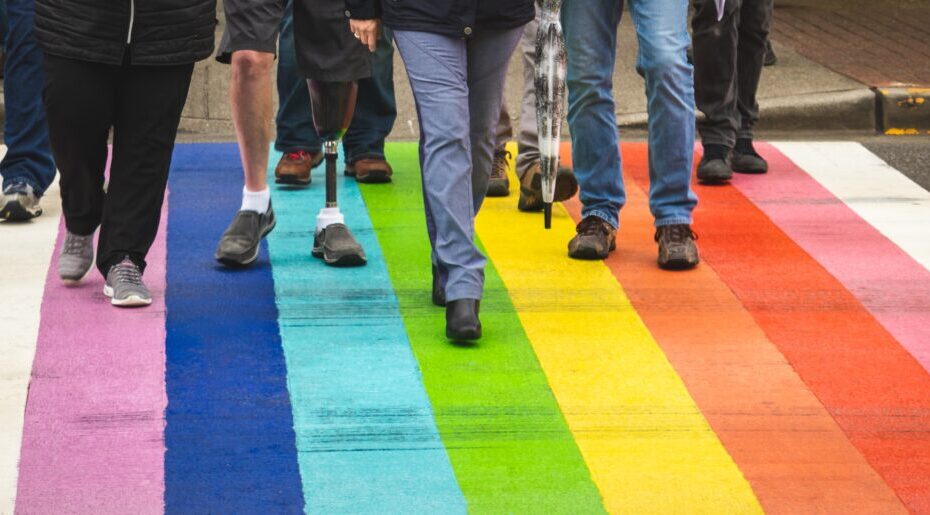The Relevance of Inclusive Language
Home »As a social entrepreneurship, IWORDS takes serious responsibility of keeping up to date and close to the concerns, demands and needs of oppressed people. At the Language Services department, we are passionate about delivering high-quality translations, which are gender transformative by employing inclusive language.
The origins of inclusive language can be traced back to the 1970s, when Spanish-speaking feminists came forward to raise the issue of how women were being excluded in the Spanish language, due to the use of the generic masculine in plural settings, highlighting the sexism rooted within.
Circa 2018, emerging from the demonstrations supporting the legalization of abortion in Argentina and the MeToo movements in Spain, another wave arose on the discussion, this time activated by queer and trans communities, stressing the importance of ending the gender binary to achieve actual gender inclusiveness.
Language nourishes our perception of reality; therefore, it has the power to contribute to shaping the world we envision. Its importance on human rights, equality and justice, for example, relies on shedding light or shadowing specific populations, their lives, voices and needs. The use of inclusive language not only celebrates gender diversity and gender expressions; it also recognises their very existence, which can function as a foundation for further representation and participation in public decisions and politics.
At IWORDS, we do not take for granted that everyone will feel included in a text or communication. We believe that, as translators and linguists, we contribute in how much we perpetuate or dissolve the gender binary, patriarchy, and, ultimately, inequality. The Spanish language entails a more profound challenge than English, for example, which is a more gender-neutral language because of the shortage of gendered words. We work to reimagine the Spanish language, by stepping away from the generic masculine and the gender binary, while adhering to RAE and Fundéu standards. However, creative work still needs to be done in both English and Spanish to achieve not assuming a person’s gender, for example.
Whilst inclusive language is a significant step, it is only a small part, and a means to a more just world. We are aware that language alone does not guarantee inclusiveness, nor the rights of every person, but we strive to contribute to these ends by providing high-quality specialized language services to our clients.
Share…
More posts…
Contributing to gender equality and women’s right through our proposal writing services
Contributing to gender equality and women’s right through our proposal writing services In July 2020, the World YWCA—a grassroots-driven global movement rooted in the leadership of women, young women, and girls—commissioned IWORDS Communications to write the…
Read More Contributing to gender equality and women’s right through our proposal writing services
Translating for the Girls First Fund
Translating for the Girls First Fund The Girls First Fund (GFF) is a funding partnership that focuses on ending child marriage across the world. They aim to bring together donors and community-based organizations…
Translation and interpretation during the COVID-19 pandemic
Translation and interpretation during the COVID-19 pandemic When COVID-19 started spreading, we knew we were about to experience something new, something that would change the way we live and work, at least temporarily.…
Read More Translation and interpretation during the COVID-19 pandemic



